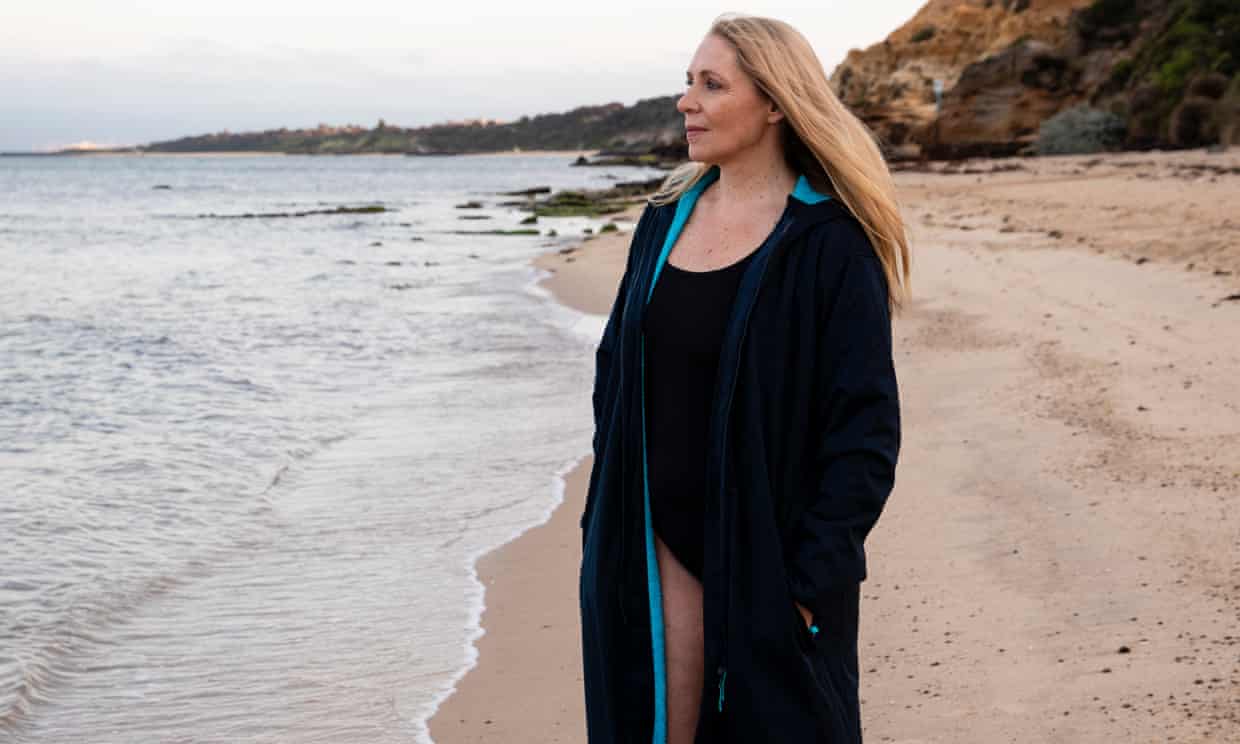
Experience: I survived a boating accident that killed my family
by Susan BergMy brother was shouting that water was coming in. Then we were tipped into the sea
It happened so fast. One minute I was at the helm, steering our little boat across the calm expanse of Melbourne’s Western Port Bay. The next, the acceleration cut and my 16-year-old brother, Bill, was shouting that water was coming in. Our leisurely family boat trip had turned into a disaster in the space of 30 seconds. Our boat sank and my mum, dad, Bill and me were tipped into the sea. It was later found that the bottom of the boat was completely rotten. It just wasn’t visible to the naked eye.
Shocked and unprepared, we had no option but to start swimming. Nobody had seen us go down and, as it was about 7pm, other boats had headed to shore. It was up to us to rescue ourselves. I was 15 and a reasonably good swimmer. We all had lifejackets on, but the 3.5km to land looked a long way. I worried whether we’d make it. Then darkness started to fall. Dad had difficulty soon after we left the boat, so Bill went to help him. Mum and I stuck together, but as time went by I was getting further ahead. We’d call out to each other every few minutes.
“Susan, are you OK?”
“Yes, Mum.” Our voices bounced out of the dusk, the only signs of life in the terrifying expanse of water. At some point the calls stopped. I must have pulled too far ahead to hear. I was filled with the need to swim quickly to get help. Gulls shrieked overhead and I kept imagining they were warning me of an attack from the sharks that inhabited the bay. I could see land, but it didn’t seem to be getting any closer.
After more than three hours in the water, I finally felt the bottom. I’d reached the mudflats of what I thought was the mainland. Weak, cold and exhausted, I dragged myself through the quicksand mud, which was up to my waist. This was more terrifying than swimming. The mud sucked me down and I feared I could be swallowed. My muscles ached and it didn’t feel as if I was making any progress. The clock was ticking in my head. I needed to get help for my family. When I finally made it ashore, I realised I was on French Island – a former prison island inhabited by only 60 people. I was terrified that if I didn’t find help quickly my family may die.
I ran through scratchy bushland and, after about two kilometres, found a house. I scrambled to get my story out to the couple who answered the door and they took over from there.
I was hopeful my family was still alive, but felt overcome by the guilt of taking a hot shower when they were still out there in the dark. As the water streamed over me, I cried and cried.
Mum, Dad and Bill’s bodies were recovered the following morning. Why had I survived? I had been driving the boat. I had left Mum. I should be dead, too. The guilt was terrible.
I couldn’t deal with what had happened and for the next few years I didn’t care if I lived or died. I was on a path of self-destruction that only changed when I had my son, William, five years later.
For years, I avoided water at all costs. But in 2015, 30 years after the accident, a friend suggested I face my fears and do a local 1.2km charity swim. My first trip to the pool was very short. My anxiety was so bad that I couldn’t breathe. I had to get out.
I tried for four months, but nothing worked until a local swim coach heard my story and offered to help. At first the water was filled with terrible memories: a bird calling overhead reminded me of the gulls; I imagined my family, helpless in the water’s grip. But over the next six months the beauty of my training grounds at Half Moon Bay started chipping away at my terror. I imagined how proud my family would be. I even started to enjoy it.
Fourteen months after my challenge was set, I completed the charity swim with William cheering me on. I went on to swim The Rip – a notoriously dangerous stretch of water – and recently swam the English Channel as part of a four-person relay. My fear no longer controls me, and now I use my swimming to raise awareness of domestic violence, an area close to my heart.
It took 30 years, but I understand that what happened wasn’t my fault. Ironically it took water to heal me; swimming has gone from being the hardest thing I’ve ever done to something I crave.
• As told to Emma Levett.
The Girl Who Lived, by Susan Berg, is out now.